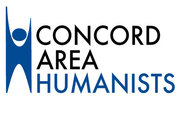Posted on January 26, 2014 by David

In my last post on Non-Arrogant Humanism, I referred to a statement Roy Speckhardt made to the effect that we can disagree with theists and still be respectful, but we cannot ridicule them and still be respectful. It was also brought out that in many areas we want to work with groups – even though they are theists.
Secularism is a way of governing and is not a religious or philosophical belief about beliefs. Secularism, as I am using it here, only means that the government will govern with laws and policies and enforcement without regard to any religion or religions. The opposite of Secularism is Pluralism where the government tries to govern while accommodating one or more religions. Over the past many years we have seen the disastrous results of trying to govern under Pluralism as the United States has equated Christianity with Democracy, and with Capitalism.
When we look at the countries in Europe, we often see Secularism at work. Austria is about 75% Catholic. But not necessarily practicing Catholic as they are considered Catholic if they were baptized as Catholics as infants and not necessarily if they attend mass regularly. Yet the Catholic faith has little influence in the Austrian government. The same is true with the Protestant countries of Sweden, Denmark, etc. These religions are not outlawed, or censored, or kept from believing in their faiths at all. However the churches have little if any influence in the governance of these countries.
Great Britain is experiencing a great problem trying to accommodate to Sharia Law. Although there are no stonings in Great Britain, there are Sharia courts set up to handle special issues involving finance and divorce. And while there have been little attempt to instill Sharia Law here in the United States, there has been a great deal of opposition from some of the political Fundamentalists. The problem with these Fundamentalist arguments against Sharia Law in the US is not that we should not accommodate to these laws, but they often want the US to accommodate and institute Judeo-Christian laws instead. They would be closer to the truth if they were trying to remove all religious influences from our governance – not just Muslim.
Secularism assures that all laws will not favor any one or more religion and won’t be passed or imposed because of religious reasons. The reasons for the laws should be because they are best for society as a whole. Some laws may coincide or complement religious beliefs, but religious beliefs should not be the reason for these laws. For instance: marriage. There should not be any religious reasons for any marriage laws. Society may decide that monogamy is the best policy, but it should be because it is deemed best for society – not because it is deemed best for any particular religion. The same is true with gay marriage. Society should do what is best for society, including the GLBTQ community, and not disallow it because of any religious reasons.
And it is because of this that we as Humanists should support and promote Secularism not as anti-theists but because it is the best way to govern. And with that as a principle, we should realize that much of our advocacy work should be done in collaboration with other religious organizations. Instead of taking a paradigm of competition and control, we should be operating within the paradigm of collaboration and cooperation.
For instance: Government sponsored Nativity scenes. We do not have to come across as anti-Christian when we insist that government monies not be spent on religious based decorations. Instead, we should be joining with Muslims and Jews to press the point that government monies should not be spent promoting any religion. That is promoting Secularism and is not being anti-religious.
Another instance: Health care. In the latest Secular Coalition for America’s newsletter, it states that the 2014 Budget Bill restores only half of the funds for “medically accurate, comprehensive sex education” while the Competitive Abstinence Education grant program was fully restored. Secularists would say that the funding should not be disproportionate according to religious beliefs. Also, Obamacare provisions for birth control should not be restricted just because of religious beliefs or religious institutions. These governance issues should be determined strictly because of what is deemed best for society and not what is best for any particular religion or church.
The Secular Coalition for America should not be comprised only of non-theistic organizations like Humanists, Atheists, Agnostics, etc. Just as Jewish and Muslim groups should be joining the Secular Coalition for America in fighting against Christian themed government decorations, so too many of the main stream religious groups should want to join in seeing that Health Care issues are handled in a Secular fashion.
And that means that we as Humanists must be reaching out to these churches and religious organizations which are also desirous to see that good governance is free of all religions. We need to base our collaborations on our shared values and not on the differences of our beliefs. Secularism is not a religious concept, so it should not be allowed to appear as being anti-religious.


5 Comments
Hmmm... I see your point that Secular does not mean anti- or even non-religioius. Are you familiar with the organization Americans United for Separation of Churh & State? Their long-term executive director, Barry Lynn, is a UCC minister and most definitely a theist. He strongly recognizes the distinction you have made.
It is an interesting point that the Secular Coalition for America is either not well named or should welcome theistic religions. (It already has UU Humanists, Secular Judaism and Ethical Culture as members which are each non-theistic religious organizations.) I think there is a need for a coalition group of atheist/humanist/freethinking organizations. There are actually two: SCA and the United Coalition of Reason; SCA focuses on separation of church & state issues in government and United CoR focuses on grassroots organizing. I think it would confuse the mission of either organization to include theistic-religious members but they should both be open to working with any groups that share their values.
Speaking of religion-based laws, aren't laws regulating sexuality (e.g., prostitution) religiously motivated?
Add your comment